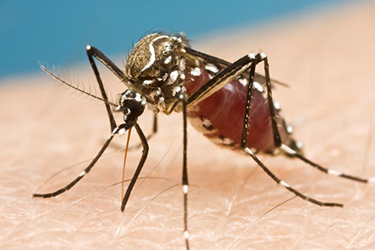Zika is on the sneak
Department of Health and Human Services received diagnostics of two women in that have recently traveled to Zika-affected countries and have been infected with the Zika virus. These are the first cases reported in the state on February 4th. Both women were in their 20’s. One was from Douglas County and the other was from Sarpy County. Neither were hospitalized.
In the past year the Zika virus has begun to spread quickly throughout Africa, Southeast Asia, and the Pacific Islands. However, in the United States the virus has been diagnosed to 52 people. All of these accounts were travel-associated, and were not locally transmitted. Zika is a vector-borne illness, or an illness transmitted by a bug bite. The virus is transmitted through a Aedes species.mosquito bite from an infected It can also be passed through saliva and sexual contact, according to the Center for Disease Control and Prevention. Reports of birth defects such as microcephaly, and other health consequences have been associated with the Zika virus. Microcephaly is when a child’s head doesn’t develop fully and results in an abnormally small head size.
Signs and symptoms for Zika are similar to any virus. Which include, rash, fever, and joint pain.
Only one out of every five people show symptoms when having the virus. North Platte High School sophomore, Callie Hodgson has a direct tie to the illness. Her six year old sister, Mackensie Brown, became ill and showed symptoms for the virus. She was sent to the Children’s Hospital in Omaha and was tested. However, after testing they learned that she did not have Zika and was later tested for kawasaki disease. Doctors are aware of the potential that the virus holds and are very cautious when dealing with patients that show symptoms.
NPHS health sciences teacher, Jason Drake said, “I don’t think that the virus is prevalent in the United States, it will be a bigger problem in 3rd world countries. The mosquitos that transmit the illness reproduce in sink water and drains. However, the sexual transmission could be a problem in the United States.” NPHS school nurse, Jewel Hampton, is definitely worried about the Zika virus and the effects it can hold on newborns and the children’s future. She said, “If it is not controlled it could become an epidemic and could potentially impact our health care system.”
If you are traveling overseas or have recently, you should keep the Zika virus in mind. If you show symptoms and have recently travelled to the infected areas, visit your doctor immediately. If you are planning on getting pregnant or are pregnant, then traveling to the infected areas would be a great risk to your future child. Hampton said, “Even though the virus is not deadly it has great potential on injuring fetuses’ health and future.”

Bryce Lee (‘18)
Co-Editor in chief
What's up North Platte High. It's your co-editor in chief Bryce Lee. You have probably heard me yelling during the...




Hannah Armstrong • Mar 31, 2016 at 12:44 PM
The Zika virus sounds really bad and hopefully we can do something to prevent it before we have a problem. This article is does a good job explaining and helping people be aware of the virus.